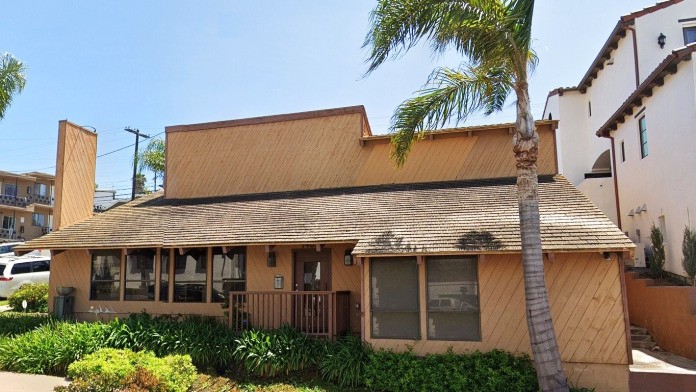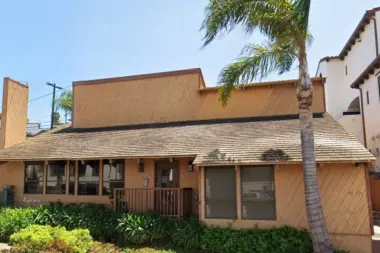There are no words to explain my gratitude towards the amazing caring loving staff I will never forget you all of you gave me the strength to stay sober you really hit home with me thank you thank you thank you Karl G
About SoberTec
The detoxification program provides individuals with withdrawal management services to support them in safely and effectively removing addictive substances from their bodies. Upon completion of the program, clients move into lower levels of care.
The inpatient program provides 24/7 supervision and a safe and secure environment. Individual therapy, group therapy, educational classes, skills-building classes, and peer support are provided. Individuals focus on the root cause of their addictive tendencies, learn new ways of coping with life stressors, and receive assistance in processing unresolved emotions and traumatic experiences from their past.
The intensive outpatient program meets three days a week for three hours at a time on average. Individual therapy, group therapy, family therapy, couples counseling, educational programming, and skills-building classes are provided. Upon completion of this program, clients often move into an outpatient level of care.
SoberTec accepts most insurance plans including Amerigroup, Anthem, Blue Cross Blue Shield, Magellan, Cigna, ComPsych, Humana, and more. Out-of-network benefits may vary, so it’s important to verify coverage with the provider before starting treatment.
Latest Reviews
Rehab Score
Gallery


Other Forms of Payment
Self-pay involves paying for treatment out of your own pocket. You can use savings or credit, get a personal loan, or receive help from family and friends to fund your treatment. If you don't have insurance or your insurance plan doesn't cover a specific program, self-pay can help ensure you still get the care you need.
Private insurance refers to any kind of healthcare coverage that isn't from the state or federal government. This includes individual and family plans offered by an employer or purchased from the Insurance Marketplace. Every plan will have different requirements and out of pocket costs so be sure to get the full details before you start treatment.
Addiction Treatments
Levels of Care
Detoxification is the first door through which clients pass to treatment. There are several different components that necessitate the level of care a client needs. You or your loved one will be evaluated, stabilized, and supported while being prepared for treatment. Detoxification presents an opportunity to intervene during a period of crisis and to encourage a client to make positive changes in the direction of health and recovery. Their professional clinical staff will utilize this time to build a therapeutic alliance while the client is being physically stabilized.
There is both the Intensive Outpatient as well as Outpatient Program. Both IOP and OP have 12 step modalities, individual and group therapy, as well as a mentorship component. Mentorship is available for both OP (Outpatient Program) and IOP (Intensive Outpatient Program). Sobertec understands that academic progress is often challenged and impeded by addiction. Various programs are available for students planning to continue their education while learning to maintain a lifestyle of sobriety.
The outpatient program is geared for clients who have established a period of sobriety, and once stabilized, participate in a lower level of care to build on what they have learned from the Sobertec IOP program or from a different facility. The outpatient program is a live-in transitional work/school program. Clients are given the option to go to school, work, or function in their daily lives while also benefitting from flexibly structured programming in the morning or evening. This program is designed for individuals who would not like to take a break/hiatus from work or school for recovery and achieve recovery in a typical life setting.
After the client has completed clinically managed detox, he or she will be able to enter residential inpatient treatment. The program places you in an environment that is safe and structured, as well as helping to promote healthy habits. Clients will participate in a comprehensive drug or alcohol treatment program and will learn about addiction in an environment that provides strong support. Rest assured that the program is dedicated to helping the entire mind and body, and there is a tremendous amount of emotional support.
Fellowship in a 12 Step Program is highly encouraged, as it is one of the best paths for sober recovery. Here you will find strong community support. Having a sponsor is strongly encouraged to get into the integrated process as well as facilitate the recovery process. The Sobertec 12-Step recovery groups assist clients in understanding the philosophy behind every step, and work with you on climbing these steps.
The biggest challenge is maintaining sober recovery after finishing with the program. The clinical team is focused on preparing you with the needed tools to continually succeed in living a healthy and addiction-free lifestyle for a lifetime. Sobertec is focused on helping you find the inner strength to achieve continual sobriety along with new healthy habits. Furthermore, their program is exceptional for also having a strong focus on working with you to resolve underlying issues that have led you to addiction.
Treatments
The goal of treatment for alcoholism is abstinence. Those with poor social support, poor motivation, or psychiatric disorders tend to relapse within a few years of treatment. For these people, success is measured by longer periods of abstinence, reduced use of alcohol, better health, and improved social functioning. Recovery and Maintenance are usually based on 12 step programs and AA meetings.
Drug rehab in California teaches participants constructive ways to stay clean and sober. Treatment revolves around helping individuals stop using the substance they are addicted to and learn healthy habits to avoid relapse.
Dual-Diagnosis, which is also known as co-occurring disorders, and is when a person is struggling with addiction as well as a mental health or eating disorder. Sobertec has been treating many clients over the years with various co-occurring disorders. They generally are amenable to alcohol and drug addiction treatment. At Sobertec, they use methods such as a combination of individual and group counseling as well as selective drug therapy.
A combined mental health and substance abuse rehab has the staff and resources available to handle individuals with both mental health and substance abuse issues. It can be challenging to determine where a specific symptom stems from (a mental health issue or an issue related to substance abuse), so mental health and substance abuse professionals are helpful in detangling symptoms and keeping treatment on track.
Opioid rehabs specialize in supporting those recovering from opioid addiction. They treat those suffering from addiction to illegal opioids like heroin, as well as prescription drugs like oxycodone. These centers typically combine both physical as well as mental and emotional support to help stop addiction. Physical support often includes medical detox and subsequent medical support (including medication), and mental support includes in-depth therapy to address the underlying causes of addiction.
Programs
Adult rehab programs include therapies tailored to each client's specific needs, goals, and recovery progress. They are tailored to the specific challenges adult clients may face, including family and work pressures and commitments. From inpatient and residential treatment to various levels of outpatient services, there are many options available. Some facilities also help adults work through co-occurring conditions, like anxiety, that can accompany addiction.
Clinical Services
Cognitive Behavioral Therapy (CBT) is a therapy modality that focuses on the relationship between one's thoughts, feelings, and behaviors. It is used to establish and allow for healthy responses to thoughts and feelings (instead of unhealthy responses, like using drugs or alcohol). CBT has been proven effective for recovering addicts of all kinds, and is used to strengthen a patient's own self-awareness and ability to self-regulate. CBT allows individuals to monitor their own emotional state, become more adept at communicating with others, and manage stress without needing to engage in substance abuse.
Whether a marriage or other committed relationship, an intimate partnership is one of the most important aspects of a person's life. Drug and alcohol addiction affects both members of a couple in deep and meaningful ways, as does rehab and recovery. Couples therapy and other couples-focused treatment programs are significant parts of exploring triggers of addiction, as well as learning how to build healthy patterns to support ongoing sobriety.
Creativity is inherently healing, and can help those in recovery express thoughts or feelings they might not otherwise be able to. Creative arts therapy can include music, poetry/writing, painting, sculpting, dance, theater, sandplay, and more. Unlike traditional art, the final product matters far less than the experience of creation and expression itself.
Experiential therapy is a form of therapy in which clients are encouraged to surface and work through subconscious issues by engaging in real-time experiences. Experiential therapy departs from traditional talk therapy by involving the body, and having clients engage in activities, movements, and physical and emotional expression. This can involve role-play or using props (which can include other people). Experiential therapy can help people process trauma, memories, and emotion quickly, deeply, and in a lasting fashion, leading to substantial and impactful healing.
Addiction is viewed as a family disease as every member of the family is impacted by their loved one’s addiction. Family involvement is a vital part of successful treatment. Families can be assured that they will receive weekly updates from the client’s case manager, through phone sessions, if the family is out of the area. There are also written exercises, as well as face to face family and individual family sessions.
Fitness therapy blends exercise with psychotherapy for a fun, inspiring, and effective way of treating addiction and other issues. By incorporating movement into counseling sessions, clients become more empowered, motivated, and goal-oriented, all while strengthening their bodies and becoming more flexible. Fitness Therapy is usually used to complement a course of treatment (inpatient or outpatient) to make it even more successful. Increasing the connection between a patient’s mind and body helps both with healing as well as in creating new, healthy habits.
Group therapy is any therapeutic work that happens in a group (not one-on-one). There are a number of different group therapy modalities, including support groups, experiential therapy, psycho-education, and more. Group therapy involves treatment as well as processing interaction between group members.
In individual therapy, a patient meets one-on-one with a trained psychologist or counselor. Therapy is a pivotal part of effective substance abuse treatment, as it often covers root causes of addiction, including challenges faced by the patient in their social, family, and work/school life.
At Sobertec, they understand the importance of not undertreating nor over-treating clients. The client’s goals are geared toward self-sufficiency and reintegration into society. The main focus is on budgeting, learning life skills, building resumes, and learning how to handle the everyday stressors of life outside of treatment.
Motivational Interviewing (MI) is a clinical approach to helping people with substance abuse issues and other conditions shift behavior in positive ways. It is more goal-oriented than traditional psychotherapy, as MI counselors directly attempt to get clients to consider making behavioral change (rather than wait for them to come to conclusions themselves). Its primary purpose is to resolve ambivalence and help clients become able to make healthy choices freely.
Nutrition therapy, aka medical nutrition therapy (MNT), is a way of treating physical, emotional, and medical conditions through diet. Specific dietary plans are designed by professional nutritionists or registered dietitians, and patients follow them in order to positively affect their physical and mental health.
Amenities
-
Residential Setting
-
Private Setting
-
Mountain Views
-
Private Rooms
-
Hiking
-
Gym
Accreditations

State Licenses are permits issued by government agencies that allow rehab organizations to conduct business legally within a certain geographical area. Typically, the kind of program a rehab facility offers, along with its physical location, determines which licenses are required to operate legally.
State License: California
License Number: 300254AP
Contact Information
1402 North El Camino Real
San Clemente, CA 92672